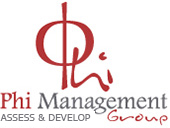|
The chief function of businesses in the hospitality industry is to serve people. In your opinion are hospitality staff being adequately trained to serve well?
We can’t generalize. Multinational hotel brands had learning and development as a priority years ago. They have the systems in place, the resources in terms of financial and human to capitalize on developing their employees. Nowadays, we have noticed that regional brands and even local hotels are very aware of the value of building internal capabilities. Today it is an obvious observation, even a cliché, that in order to achieve higher customer satisfaction, one of the components is investing in training internal customers.
In your opinion, in which areas of training and development does the hospitality industry need to improve?
If I had to choose, I would mention two areas as the most important for me; the first is customer service. It can have different names and titles. It includes basic customer interactions and how to make the customer have a delightful experience. Unfortunately, we notice, more and more, throughout the region, a downgrading in service, in business etiquette, social manners and professional behaviors. These might appear extremely boring and basic topics but it would be nonsense for me to train an organization in more sophisticated ways if, within that organization, we are still encountering unacceptable attitudes, ways of dealing with a complaint, or even methods of answering an inquiry. This service problem is not limited today to local or regional brands, you can also experience these indicators in five-star star global brands. As for the second, it is about leading people. Today, being a hotelier does not only require an understanding of the industry itself, but also specific competencies to lead a team of people, coach them and inspire them to achieve.
What are the main objectives/goals that a hospitality business should put in place in regard to training and development?
Having a solid 'Learning and Development' department is definitely a must; one that includes a team of experts and managers who have the knowhow. You don’t want a situation of “blind leading the blind”! The first goal is to have an empowered department with a well-planned budget and strong systems with automated procedures. Then, it is important to have a curriculum for all levels and positions of employees and every employee must have a decent yearly number of training hours with a tailored development plan. Certainly, this can be applied to restaurant chains too. Each one has his/her advantages and limitations.
In your opinion can people in the hospitality business be taught people skills?
The hospitality industry in general will attract people that would like to give service. However, their level and capability may vary considerably from person to person; this is where training and development is crucial in raising standards and ensuring that consistency in service delivery is achieved. In this region we deal with customers from different service industries (airlines, banks, retail, hospitals, etc). When they want to recruit employees with people skills, the desirable industry to approach is the hospitality business. It is the number one industry to ‘mine’ for people with people skills. I will say the airline industry comes second for me.
What are the benefits of staff that have been well trained and developed?
Well-trained staff will ensure your sustainability in the market - simple as that!
Of what issues should trainers and developers be aware?
There are many points, I will select three:
Firstly, trainers need to keep working on themselves to be able to lead and stay updated with the latest practices and concepts in this field.
Secondly, it is not good to simply depend on a halo effect with flashy “trendy” courses. Basics might sound boring but in the hospitality business they are essentials.
Thirdly, start thinking seriously about how to measure training return on investment (ROI). This is the best way to influence stakeholders and business owners to invest in this field.
|
|
|

